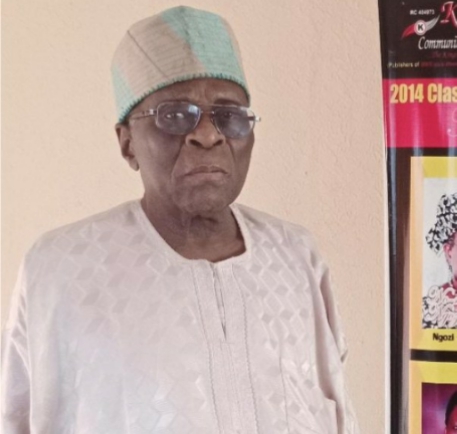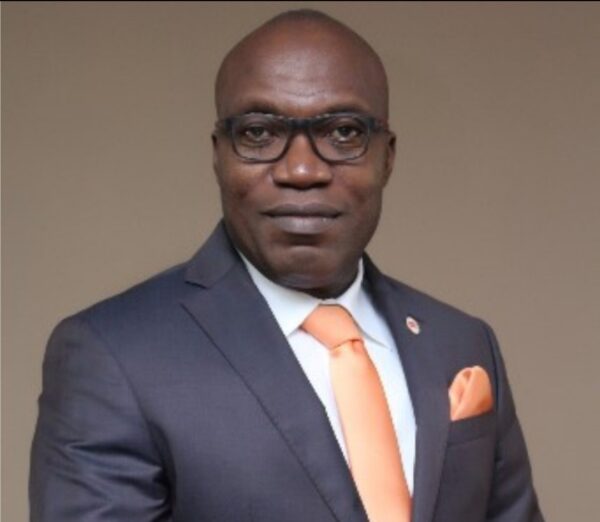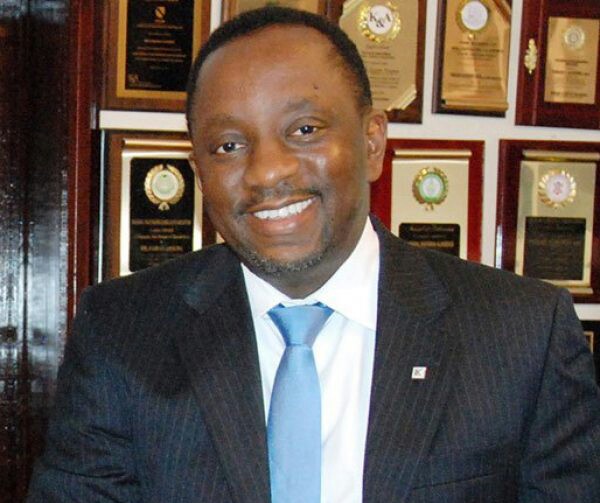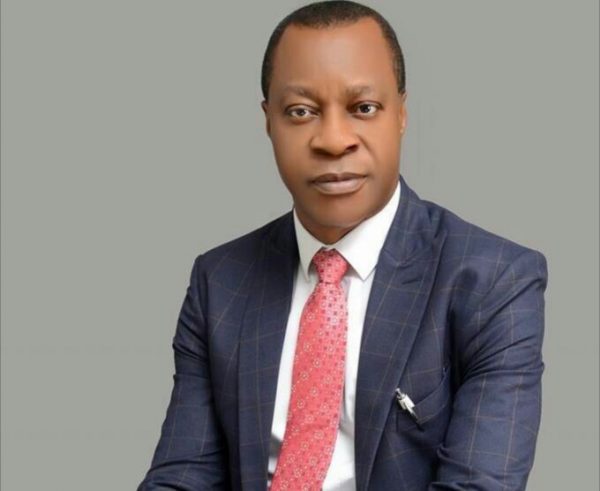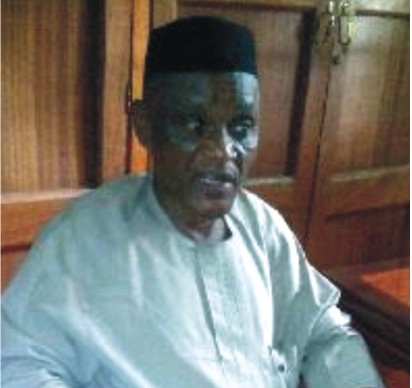I CARE INTERVIEW
Why Port Congestion Persists Despite Rail, Barge Operations – Folarin
By Kenneth Jukpor
Otunba Kunle Folarin is an economic expert and Chairman of Nigerian Ports Consultative Council (PCC). In this exclusive interview with MMS Plus newspaper he makes projections on various aspects of Nigeria’s economy for 2022, provides forecasts on the nation’s budgetary performance, gives a review of 2021 and expounds on some areas of comparative advantage in transportation with the African Continental Free Trade Area (AfCFTA).
Enjoy it:
The 10% Capital Gain tax imposed on shares disposals for proceeds over N100million and the N10 per litre excise duty on non-alcoholic carbonated drinks are two developments showing the government’s drive to generate more revenue. What would be the effect of these policies in 2022?
We have drawn attention to the propensity of the government to introduce new tax regimes to increase its revenue. However, when you look at capital gains or capital investment areas to generate money; the government is saying that it is discouraging investments. No one would deploy so much money into developing capital areas and expect to suffer a lot of charges on capital gains.
It is important to recognize that this move discourages investments. Capital attracts activities and investments. Therefore, discouraging it implies that the government is discouraging investments in infrastructure. This isn’t a good policy at this time and the federal government has to review its stand on this.
Some of the helmsmen at crucial Ministries, Departments and Agencies are politicians and political appointees. What’s the correlation between the 2023 presidential elections and the nation’s economy this year? What level of disruptions would be seen on the nation’s economy and would intense electioneering affect the economy?
There’s obviously going to be an impact and we can start looking at it from the stance of the government. The idea is that in 2022 they are looking at making money for elections even as election costs are also captured in the 2022 budget. When you look at the cost of elections not only from the government but also the individual players and political parties, you discover that they are all bent on raising necessary funds.
Most political parties are doing this by introducing a lot of charges for those who want to contest elections. This suggests that we are going to have a high-wired year in this pre-election year.
It’s also important to understand that the agencies of government are the focal points of raising funds for the government and these agencies would be under severe pressure to raise funds directly for the government and indirectly to support individuals. When this combination comes into play, we are going to have a dire situation where political parties will be expecting government agencies to raise funds for their activities.
Looking at the nation’s transport sector with emphasis on the maritime sub-sector, to what extent would challenges like security, shallow draft of seaports, corruption and cumbersome port processes affect economic activities in 2022? Is there hope for sweeping changes or will it be business as usual?
We haven’t seen any clear indication that the maritime sector would have a leverage to perform very well in 2022. We have just returned from the International Maritime Organization (IMO) Council elections where we lost. This suggests that we didn’t meet the criteria laid down by the IMO and the expectations of the member countries who voted.
In terms of performance in the transportation sector and maritime precisely, we must look at the infrastructure available to the sector. The concentration in 2021 was supposedly to fight piracy and secure the channels, but the results we got late last year doesn’t show that we are winning the game. So, what is the value of the Investments made in this area last year when compared to the results? They aren’t comparable at all.
We need to focus on the general development of the maritime transport sector and not only a minute aspect like fighting piracy and pirates keep fighting back or acquiring infrastructure or equipment that don’t arrive when we expect them. Generally, we need to develop this sector and look at how to drive a holistic growth of the sector.
In other climes, most of the core issues have been addressed. If you go to Cote D’Ivoire, you wouldn’t hear much problems relating to piracy as we have in the Gulf of Guinea (GoG) which is centrally a Nigerian terrain. We really need to address issues such as manpower development, infrastructure and Nigeria has the endowment via coast lines to be a huge success in this sector.
The challenges are very clear. They include; security, manpower, development of commerce, cargo throughput, efficient processes, among others. We haven’t addressed these challenges even though we are trying to do that. We need to do more because Nigeria is the epicenter of maritime activities in the sub-region. Nigeria must rise to the challenge and opportunity and drive our request to play more in the region and on the international scene, so we don’t have another failure at the IMO Council elections.
A lot of emphasis is paid on the budgetary allocations for capital projects in the nation’s budget especially for the MDAs. However, a look at the Ministry of Transportation’s budget shows N169million budgeted for performance audit of agencies under the Ministry. There is N100million for a new Maritime Research Centre even though NIMASA has one and there are other questionable figures. Shouldn’t the nation be concerned about reducing these bogus expenses?
It is obvious that Nigeria needs to be more proactive in dealing with issues like the audit you mentioned in the transportation sector. We have to look at the size of what we are auditing. First of all, there ought to be a supervising Ministry which is the Ministry of Transportation. When we spend so much on audits, it means that the Ministry has recognized a lot of loopholes at the agencies. This shouldn’t be the case because these monies should be spent developing capacity in the agencies rather than auditing the agencies.
As we proceed with the issues that we have to address in the Ministry of Transport, we would realize that the sector is actually lagging behind.
What is the level of Nigeria’s preparedness for African Continental Free Trade Area (AfCFTA) with regards to the transport sector because the Ministry has N60million budgeted for AfCFTA deliberations this year?
The issue of AfCFTA has been over-flogged in my opinion. AfCFTA started over 10 years ago and a lot of nations started preparing for it years ago. Several nations have clear-cut policies and they have been following it for a long time to give them an advantage in the region. Since Nigeria likes to do catch-up, it should identify which areas it has comparative advantage and where it could meet up with the competition.
Looking at the transportation sector, do we have this advantage in inland waterways, coastal shipping, manpower development, etc. So, we have a lot of challenges with the AfCFTA project that we have to grapple with. The Cabotage regime hasn’t worked in Nigeria for several years, there is a challenge in this area. There is also trouble with manpower development in terms of seafaring capacity. We have to examine our seafaring policies and address the challenges in this area. Seatime is being addressed but the problem is yet to be fully addressed.
In 2022, this sector is only going to fare as much as it is prepared. From what we can see now, we are really lagging behind in many respects. Until we address these challenges we can’t compete in the highly competitive AfCFTA market. Nevertheless, Nigeria has the potential to be the leading maritime nation in the sub-region but we must maximize these potentials.
Port congestion, strenuous port processes and corruption are some of the top issues in the maritime sector. There have been lots of initiatives to solve these problems but they remain there at the moment. Can one predict that they will be addressed this year?
In this sector, there are a lot of motions without movements. There are lots of activities, initiatives and policies such as the electronic truck call-up system, cargo terminals, traffic management on the roads, and many others. These have just been motions. What is important is to achieve a lot of movement and not just motions.
This suggests that we start to do more monitoring of the performance of these policies and initiatives. Monitoring means being there to understand the needs of the sector. Addressing the needs of the sector is very crucial to achieving success in that field.
PCC started in 2003 to suspect that the nation was going to have a gridlock and other problems in the corridors of the ports. Several meetings have been held with four Ministers who have supervised the Transportation Ministry overtime. Meetings have also been held with the Nigerian Ports Authority (NPA) and other crucial agencies in the sector.
Nigeria is the only country where we have seen residential and commercial houses surrounding the ports. The cities have moved into the ports and we didn’t do anything about it. It’s only about five years ago that we began to see the consequences and suffer the costs.
Thankfully, we are beginning to get some respite with the provision of an intermodal transport system to access the ports. The railway system and barge operations have come to help. Railway is a very expensive project. It requires time and resources. The introduction of multimodal transport would bring more relief but the cargo volumes also continue to increase. So, this issue of congestion would continue because as the cargo volume increases and we are trying to introduce multimodal transport, the effect isn’t immediate. The effects would be seen gradually, but affirmatively, it is better than what it used to be.
Congestion may prolong because we need to increase the value of intermodal transport with more railway wagons and barges deployed to move cargoes from the ports. Ports are transit corridors and not a resting place for cargoes.
How would you describe the 2020 economic outlook for Nigeria?
Overtime, the government seems to be concentrating on revenue generation as a key component of policy direction in finance. The 2022 budget shows that the government is very optimistic of its performance and revenue generation. Government is likely to increase cost in a bid to shore up revenue generation. This would lead to higher inflation because taxes would go up and we can expect some fiscal effects on the nation’s economy, including transportation, food and other sectors.
The global economy is expected to shrink in 2022. However, in Nigeria there is a projection that the nation’s economy would observe growth from about 3.7% to 3.8% growth rate.
So, when you compare both projections, you would realize that Nigeria intends to increase its revenue earnings and we expect macroeconomics to suffer. How does Nigeria intend to fund its N17.1trillion budget? This huge expenditure profile means that the country is looking at generating funds through borrowing, raising taxes, among others. Nevertheless, we have to also look at how these actions affect the economy. The fear is that the government’s attempt to generate revenue for the 2022 budget means it has to make tough fiscal decisions.
For example, the Federal Inland Revenue Service (FIRS), Nigeria Customs Service (NCS), among other parastatals have been given directives to generate revenue. There was also a directive in 2021 that all monies collected but not in the budget should be returned to the Treasury Single Account (TSA). We are looking at a situation where liquidity will be grossly affected and disposable income would reduce. The economy wouldn’t be able to service the fiscal issues from inflation.
The performance of Nigeria’s economy in 2022 would be dependent on how much money is generated. As things stand, Nigeria is getting to a situation where it would be difficult to service its debts. It’s time to start looking at new ways of generating money rather than borrowing.
Despite the fact that Nigeria has borrowed so much money, some commentators argue that the nation has under-borrowed; but I disagree. If we continue to borrow, what’s the interest rate and what’s the strategy to repay these loans? What were the conditions of these loans and what’s the performance of the loans compared with the interest rate? We must also look at the timeline for the money to be returned.

